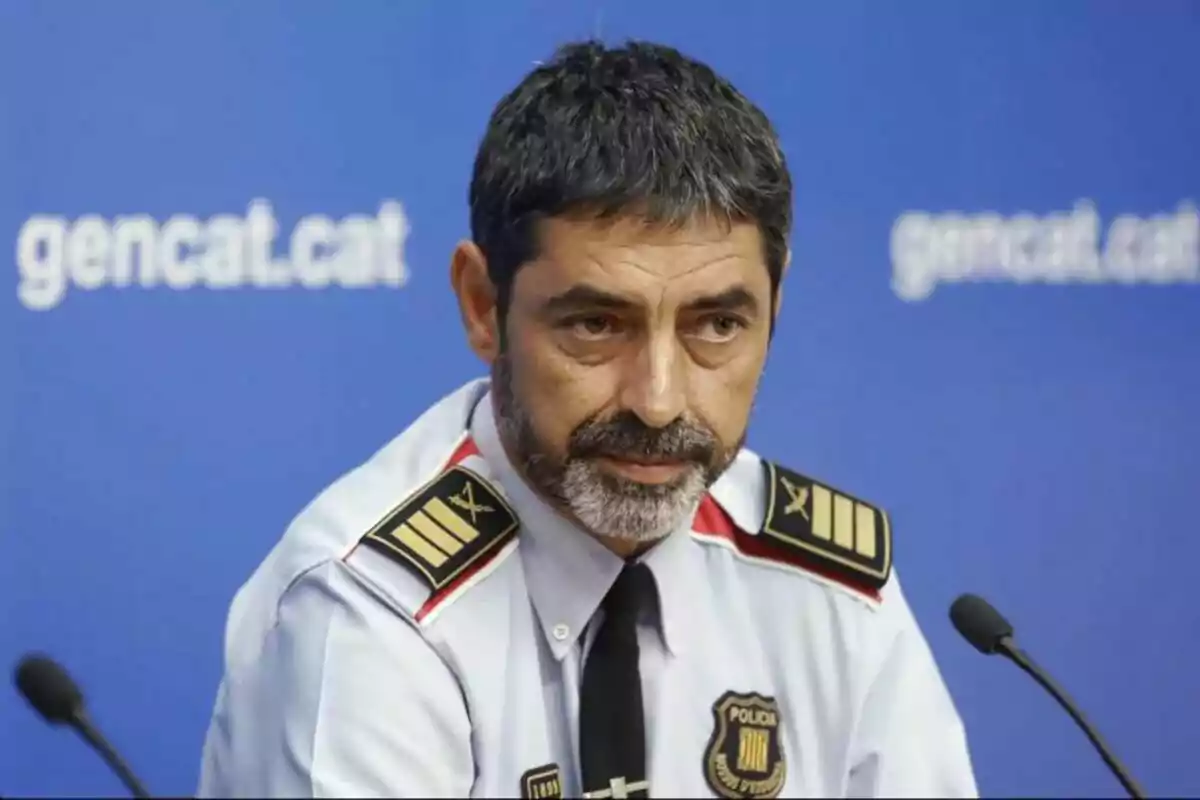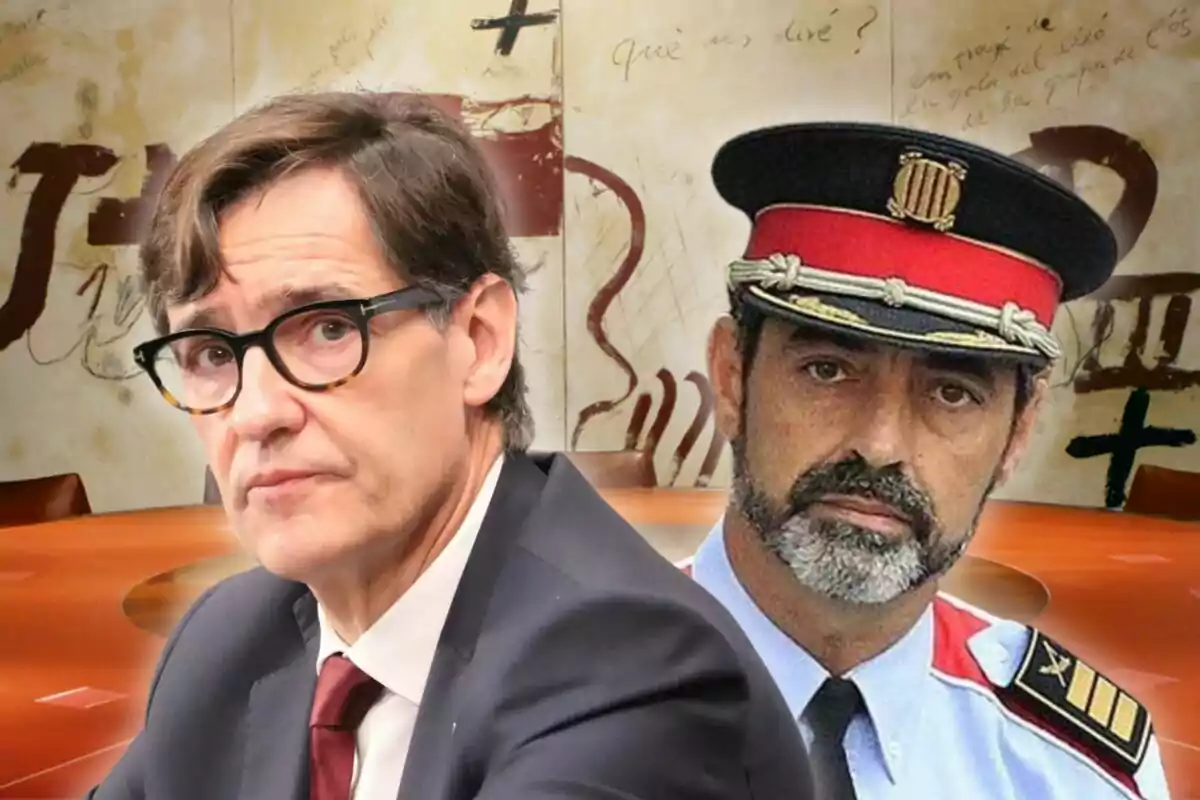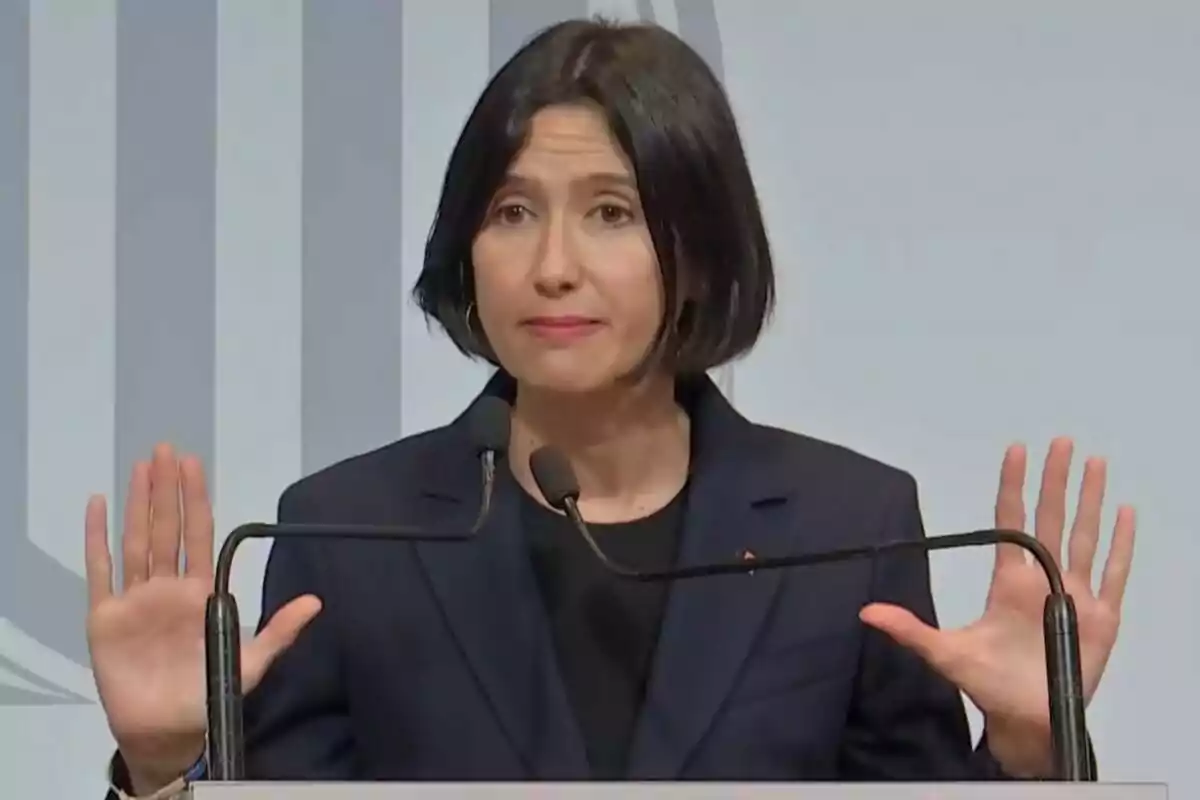
Josep-Lluís Trapero, the Main Accused in the Mossos' Rebellion
The Brutal Assault on Six Officers in Lleida Has Opened a War Between the Officers and the Commanders
Josep-Lluís Trapero was one of the big surprises in the appointments of the new Catalan government led by Salvador Illa. His selection aimed to show the overcoming of the Procés. As the new general director of the Mossos d'Esquadra, Trapero assumed the political command of the Catalan police.

During his previous tenure as major, he was in the eye of the storm for his connivance with the pro-independence government during the 1-O. Now he is back in the spotlight due to the criticism from the agents themselves. They accuse him of having left them alone in their demands for more security.
The feeling is that just like in 2017, Trapero is a hostage of the political power that has placed him in his position. This forces him to support the official narrative that downplays the insecurity in Catalonia and the violence against the police. But by doing so, he puts himself at the center of the target of the agents' rebellion against their commanders and the political power.
Trapero, at the Service of Núria Parlon
The assault on six police officers in Lleida has triggered a war between the agents and their operational and political commanders. The agents feel abandoned in a context of rising violence and crime in Catalonia. They feel they have to face high-risk situations without legal security or support from their commanders.
What has bothered them the most are the statements from the officials saying that what happened in Lleida are "isolated incidents." The most criticized is Trapero, who neither defended them nor attended the rally this Monday. This clearly places him on the side of the power, which tries to sell the narrative of improved security.

It should be remembered that Salvador Illa's government opted for a change of direction in the Interior Ministry and promised to "bend the crime curve." Trapero arrived at his position at the same time as Minister Núria Parlon, and they both have an excellent relationship. Hence, Interior (Parlon) and the leadership of the Mossos (Trapero) act under the same interests.
This reinforces the idea that Trapero is acting as a pawn of the Govern in the leadership of the Mossos. His mission is to convey an improvement in security and public order which, according to the agents, is fictitious. Hence, he is now labeled as a traitor.
Security Against Power
The crisis is deeply rooted because it highlights the failure in the management of public security by the Govern. The narrative is not being accompanied by results. Events like Font de la Pòlvora, Salt, Mataró, and La Mariola show that Catalonia is close to a point of no return.
In the face of this serious situation, the police commanders, at the service of the political power, try to convey an optimistic view of reality. Something that the unions deny. They warn that the situation is much worse than what is being conveyed, and that Catalonia is on the brink of tragedy.
Trapero is now the visible face of that power that for years has sacrificed the agents of the force for political interests. This includes, it should not be forgotten, the parties that whitewash and even cheer the violence against the police. This reinforces the idea that beyond Illa's narrative, Catalonia remains in the hands of the pro-independence movement.
More posts: